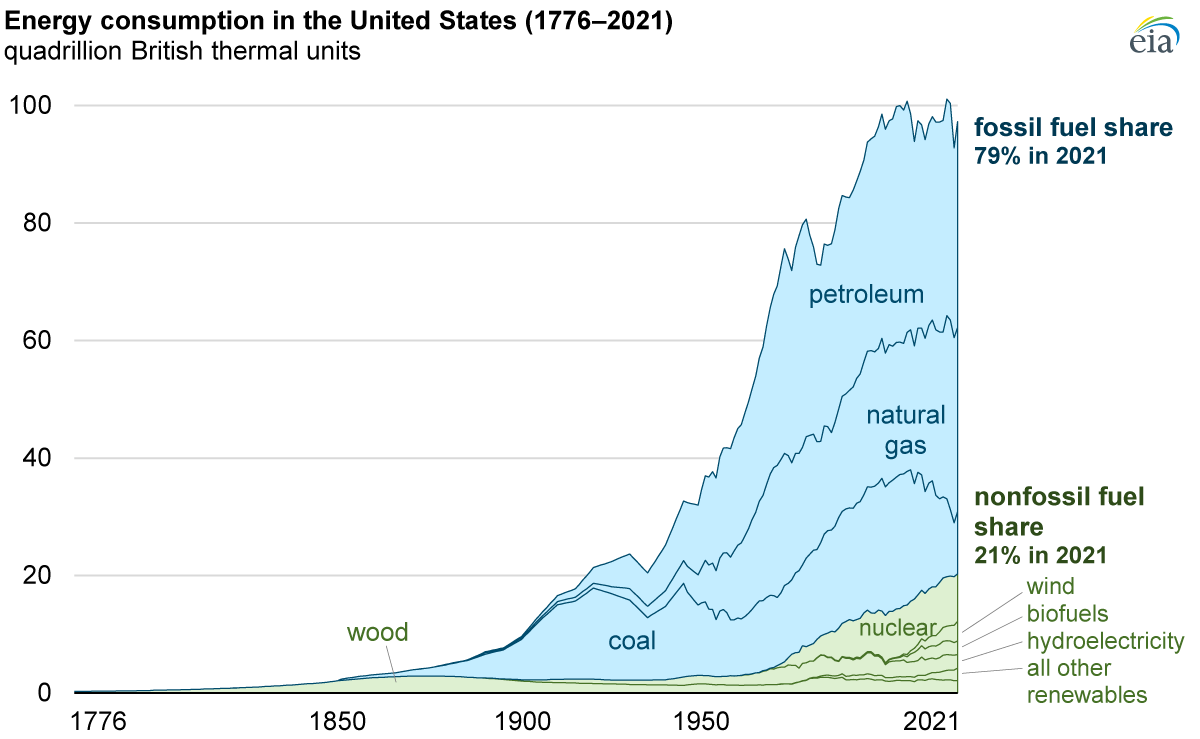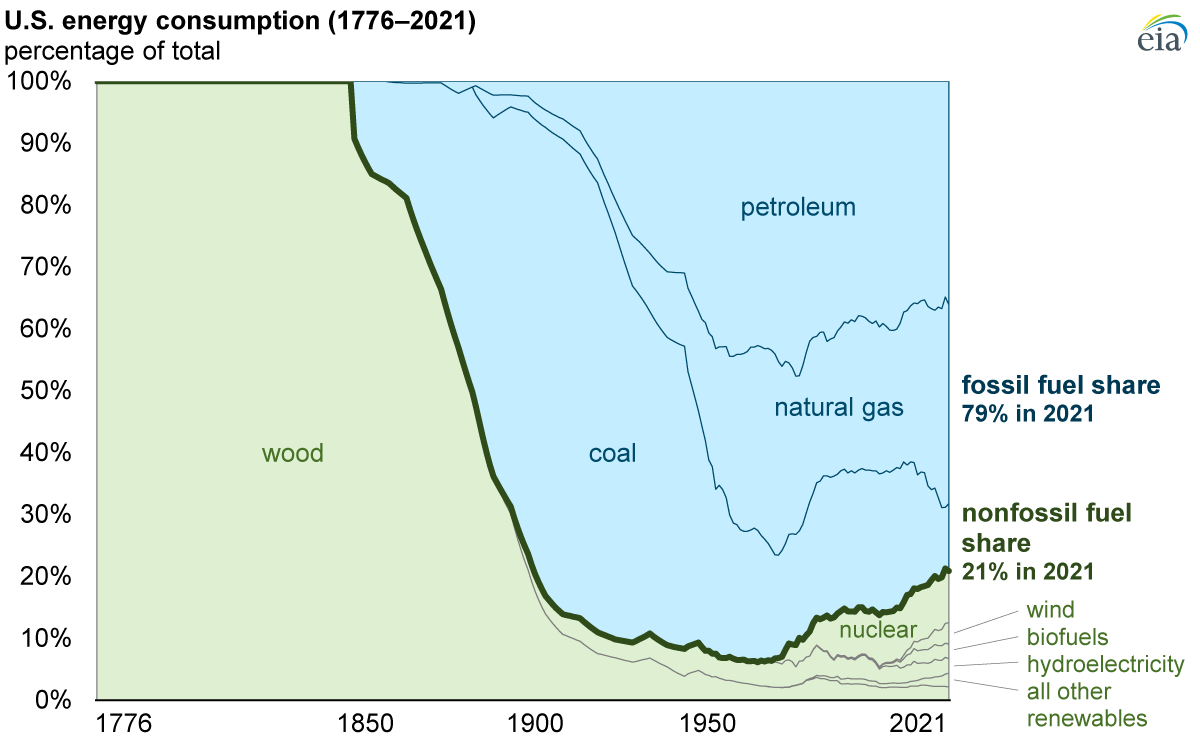Fossil fuels—petroleum, natural gas, and coal—accounted for 79% of the 97 quadrillion British thermal units (quads) of primary energy consumption in the United States during 2021. About 21% of U.S. primary energy consumption in 2021 came from fuel sources other than fossil fuels, such as renewables and nuclear, according to data in our Monthly Energy Review.

The 4-quad increase in U.S. primary energy consumption last year was the largest annual increase on record and was mostly attributable to a gradual return to pre-pandemic levels of activity. The increase in 2021 follows a 7-quad decrease in 2020, which was the largest annual decrease on record.
Petroleum has been the most-consumed primary energy source in the United States since surpassing coal in 1950. Consumption of petroleum in the United States remains less than its 2005 peak, totaling 35 quads in 2021. U.S. natural gas consumption totaled 31.3 quads in 2021, a slight decline from the previous year.
U.S. coal consumption increased to 10.5 quads in 2021, marking the first annual increase in U.S. coal consumption since 2013. U.S. coal consumption has fallen by more than half since its peak in 2005. Reduced coal-fired electricity generation has driven much of this decline.

Our Monthly Energy Review's pre-1949 estimates of U.S. energy use are based on two sources: Sam Schurr and Bruce Netschert’s Energy in the American Economy, 1850–1975: Its History and Prospects and the U.S. Department of Agriculture’s Circular No. 641, Fuel Wood Used in the United States 1630–1930.
Appendix D of our Monthly Energy Review compiles these estimates of U.S. energy consumption in 10-year increments from 1635 through 1845 and 5-year increments from 1845 through 1945. Data for 1949 through the present day are available in the latest Monthly Energy Review.
Principal contributor: Owen Comstock









